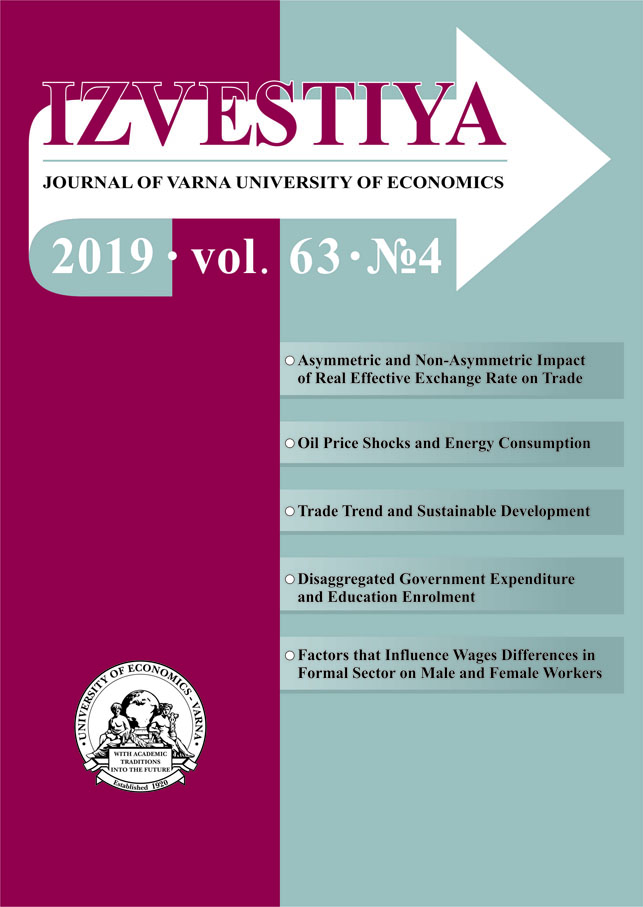Disaggregated Government Expenditure and Education Enrolment in Nigeria
Disaggregated Government Expenditure and Education Enrolment in Nigeria
Author(s): Olawunmi Omitogun, Farouq Adekunle Akanni, Adedayo Emmanuel Longe, Adewale Musliudeen BalogunSubject(s): Social Sciences, Education
Published by: Икономически университет - Варна
Keywords: government expenditure; secondary school enrolment rate; ARDL
Summary/Abstract: This study investigates how disaggregated government expenditure has an impact on education enrolment in Nigeria within the period 1980 and 2017. The Autoregressive Distributed Lag (ARDL) was used for the parameters estimation. From the findings, in the short-run, capital expenditure components show a negative insignificant impact on education enrolment except for capital expenditure on social service which was insignificantly positive. For recurrent expenditure model, in the short-run, all the expenditure components had a negative impact on education enrolment, but only recurrent expenditure on economic services was significant. In the long-run, while recurrent expenditure influenced education enrolment negatively, others were positive but insignificant. Capital expenditure model error correction test confirms that the components do not correct education enrolment back to equilibrium in the long-run. For recurrent expenditure, the result reveals that the components correct 0.006% of education enrolment back to equilibrium in the long-run.
Journal: Izvestiya. Journal of Varna University of Economics
- Issue Year: 63/2019
- Issue No: 4
- Page Range: 309-326
- Page Count: 18
- Language: English

